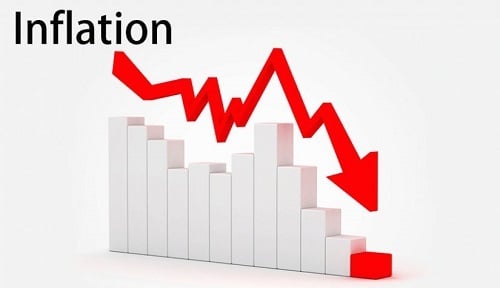Paragraph 1: Declining Inflation Trend and Deflationary Pressure
Ghana’s inflation rate has experienced a significant decline, reaching 13.7% in June 2025, down from 18.4% in May 2025. This marks the lowest inflation level in over three years and represents the sixth consecutive month of decline. This sustained downward trend indicates a positive shift in the country’s price stability, suggesting that the economy is moving away from the high inflation levels experienced previously. Further reinforcing this positive trend, Ghana recorded deflation on a month-to-month basis, with prices falling by 1.2% between May and June 2025. This signifies that consumers paid less for goods and services in June compared to the previous month, providing relief to households and potentially boosting consumer spending.
Paragraph 2: Factors Driving the Decline in Inflation
The decline in inflation can be attributed to several factors, primarily the fall in food prices. Food inflation, a major component of the overall inflation basket, decreased significantly from 22.8% in May to 16.3% in June, a drop of 6.5 percentage points. This substantial reduction in food inflation suggests improvements in food supply and potentially the effectiveness of government interventions aimed at stabilizing food prices. Non-food inflation also contributed to the overall decline, falling from 14.4% to 11.4%. This suggests a broader slowdown in the cost of goods and services across the economy, further contributing to the easing of inflationary pressures.
Paragraph 3: Government Measures and Their Impact
The government’s price stabilization measures appear to be yielding positive results. These measures, which include managing the exchange rate, boosting local food production, and implementing targeted subsidies, are likely contributing to the easing of inflationary pressures. By managing the exchange rate, the government aims to control the cost of imported goods, which can have a significant impact on inflation. Efforts to boost local food production aim to increase the supply of food, thereby reducing prices. Targeted subsidies provide direct relief to consumers and producers for essential goods and services, further contributing to price stability. The combined effect of these measures is likely playing a crucial role in the observed decline in inflation.
Paragraph 4: Regional Disparities in Inflation
Despite the overall positive trend, significant regional disparities in inflation persist. The Upper West Region recorded the highest inflation rate at 32.3%, driven by high food and utility costs, while the Bono Region experienced the lowest inflation at 8.4%. This significant variation highlights the need for more targeted and localized interventions to address the specific challenges faced by different regions. Factors such as local production capacity, transportation costs, and access to essential services can influence regional inflation rates and require tailored solutions.
Paragraph 5: Implications for Economic Recovery and Future Outlook
The declining inflation rate has positive implications for Ghana’s economic recovery. With easing cost-of-living pressures, consumer confidence is expected to improve, leading to increased spending and economic activity. Businesses are also likely to benefit from the more stable economic environment, encouraging investment and job creation. The Bank of Ghana may now have more flexibility in its monetary policy, potentially considering interest rate cuts to further stimulate economic growth. These factors combined create a more favorable environment for economic recovery and sustainable growth.
Paragraph 6: Need for Granular Data and Targeted Interventions
To further consolidate the gains made in reducing inflation and address regional disparities, utilizing granular data for localized analysis is crucial. Understanding the specific drivers of inflation in each region will enable policymakers to design and implement more effective targeted interventions. By addressing the root causes of regional inflation disparities, the government can ensure that the benefits of lower inflation are felt more evenly across the country. This will contribute to greater economic equity and a more inclusive economic recovery. Continued monitoring and evaluation of the impact of policy measures, combined with ongoing data analysis, are essential for maintaining price stability and fostering sustainable economic growth in Ghana.


